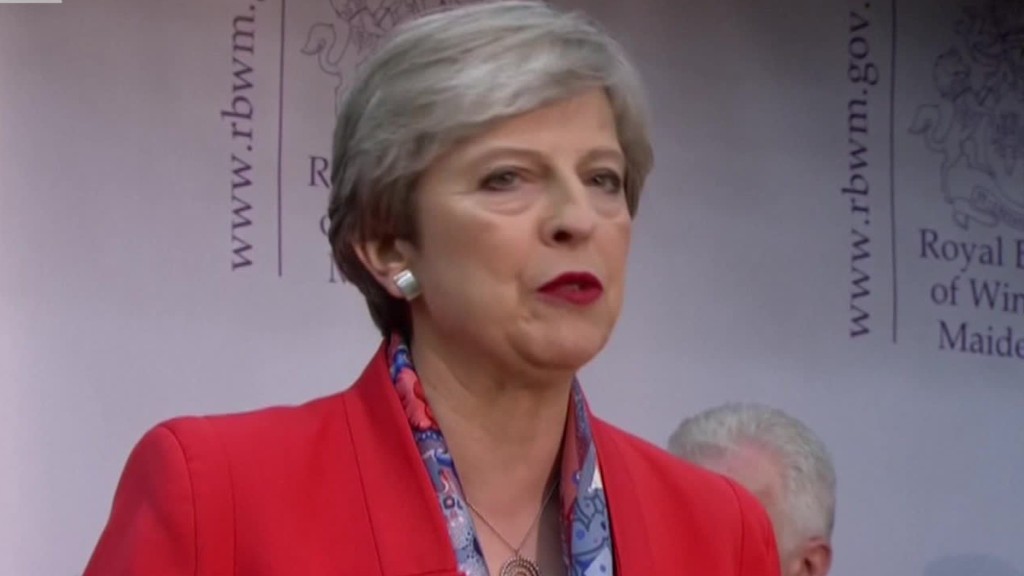
More uncertainty is the last thing that British businesses needed. But that's what they're getting.
Companies and industry groups across Britain reacted with shock on Friday to election results that have thrown the country's political system into disarray and raised questions over Brexit.
Prime Minister Theresa May's general election gamble has dramatically weakened her party's position in parliament and further complicated exit negotiations with the European Union just 10 days before they were slated to begin.
Businesses, which have long clamored for increased clarity on Brexit, lamented yet another dose of uncertainty.
"We cannot stress strongly enough the need for rapid and decisive policy direction to ensure that business can continue to invest for the long term growth and ensure the global competitiveness of the British economy," said Aston Martin CEO Andy Palmer.
Related: Full election results
May, whose Conservatives failed to secure an outright majority in parliament, said Friday that she would try to form a new government, relying on the support of a smaller party.
But her position has been significantly weakened, and she faces a resurgent Labour Party led by Jeremy Corbyn. The result could be more political gridlock.
"The last thing business leaders need is a parliament in paralysis, and the consequences for British businesses and for the U.K. as an investment destination would be severe," warned Stephen Martin, head of the Institute of Directors, a U.K. business lobby group.
Business leaders have called on politicians to put aside their differences and govern responsibly.
"Businesses are adept at forming alliances and coalitions when important interests are at stake. We should expect the same of our politicians," said Adam Marshall, director general of the British Chambers of Commerce.
But Marshall questioned whether the U.K. can effectively enter Brexit negotiations without more clarity on national priorities.
"No business would walk into a negotiation without clear objectives, an agreed starting position, and a strong negotiating team," he said. "It is hard to see how Brexit negotiations could begin without answers on these important questions."
Related: How U.K. trade stacks up
Brexit talks will address major issues related to trade, immigration and other business interests. For example, businesses in the U.K. could face new barriers to trade with the EU, a market that accounts for 44% of all British exports.
Britain and the EU must also sort out an agreement that addresses the status of millions of immigrants. Brexit has called into question the legal rights of roughly 3 million citizens of other EU countries who now live in the U.K., as well as Brits living on the continent.
The new government -- whatever shape it may take -- also has to address Britain's acute growth problem.
The U.K. economy, which was until recently the strongest performer in Europe, has fallen to the bottom of the growth league, delivering weaker expansion in the first quarter than the other 27 members of the EU.
And while unemployment is very low, the country has been struggling with low wage growth since the global financial crisis. Wages fell in the three months to March, after taking inflation into account.
There's no time to waste.
"In the coming hours and days, business needs immediate reassurance from the government that emerges about how it will protect the economy from any political turmoil," said Mike Cherry, chairman of the Federation of Small Businesses.

